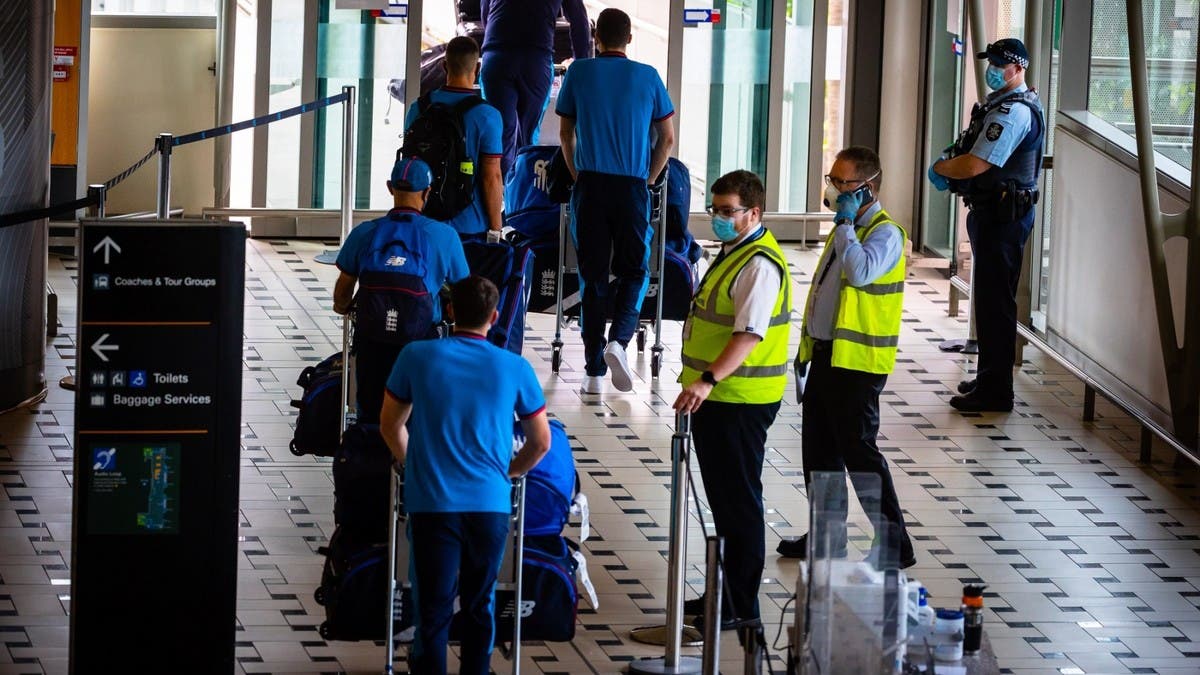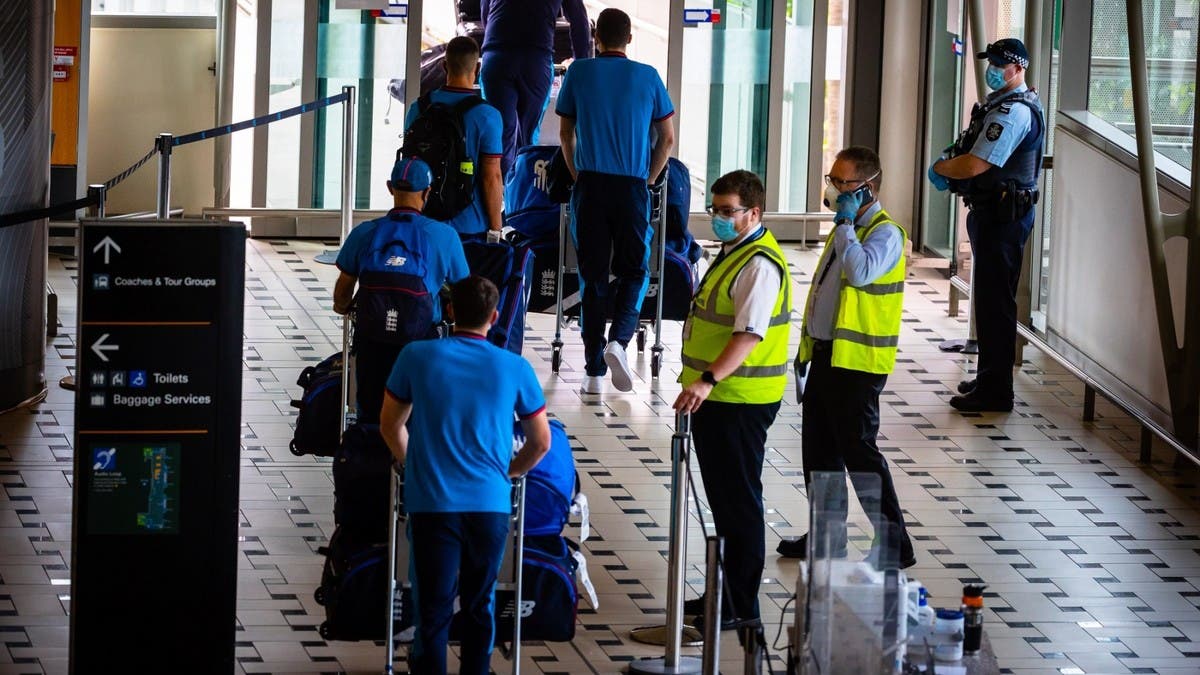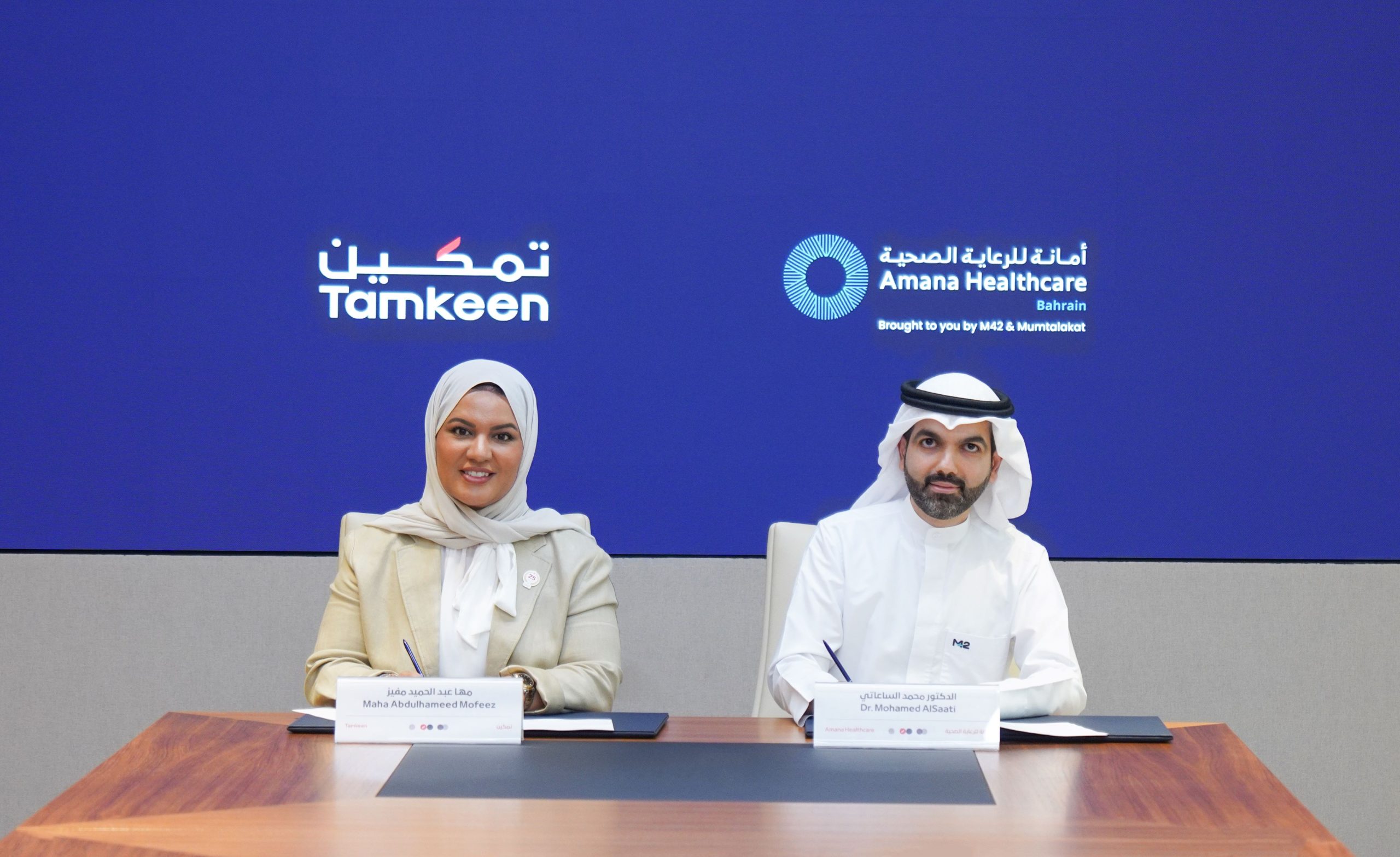Health
Australia’s reopening plans in doubt after Omicron cases

Health
Children’s Hospital Los Angeles Named Among Top 10 Children’s Hospitals in the United States 16 Years in a Row
Health
Tamkeen’s support for “Amana Healthcare” will provide hundreds of job opportunities for local talent in the healthcare sector
Health
Boehringer Ingelheim Launches Broadest Spectrum Parasiticide for Cats in the UAE
-

 World3 years ago
World3 years agoComprehensive plan for development of Arab culture to be discussed at UAE conference
-
Entertainment2 years ago
R-rated Winnie-the-Pooh movie brings scary spin to Disney’s beloved character
-

 World3 years ago
World3 years agoHead of new Yemeni council promises end to war via peace process
-

 Business1 year ago
Business1 year agoKuCoin Delivers Keynote Speech at Green Sustainable Finance Forum in COP28 Blue Zone
-

 Entertainment8 years ago
Entertainment8 years agoNew Season 8 Walking Dead trailer flashes forward in time
-

 World8 years ago
World8 years agoIllinois’ financial crisis could bring the state to a halt
-

 Entertainment8 years ago
Entertainment8 years agoThe final 6 ‘Game of Thrones’ episodes might feel like a full season
-
Entertainment1 year ago
Hollywood’s video game performers authorize strike if labor talks fail
Health
Australia’s reopening plans in doubt after Omicron cases

Health
Children’s Hospital Los Angeles Named Among Top 10 Children’s Hospitals in the United States 16 Years in a Row

As a leader in pediatric academic medicine, Children’s Hospital Los Angeles (CHLA) has continued to fulfill its mission by making discoveries and advances to enhance health and save lives. Today, Children’s
Hospital Los Angeles was recognized among the top 10 pediatric hospitals in the United
States, according to U.S. News & World Report, which has announced the 2024-25
edition of its annual Best Children’s Hospitals rankings.
The privilege of earning a place on U.S. News Honor Roll of Best Children’s
Hospitals has been conferred upon CHLA 16 years and counting, since the magazine
created the list. Additionally, CHLA retained its No. 1 children’s hospital ranking in U.S.
News’ separate regional survey of Pacific Rim pediatric hospitals, tying with two others
in the region. Children’s Hospital Los Angeles also tied for No. 1 in California and is the
No. 1 pediatric provider in Los Angeles. For the 2024-25 survey, U.S. News did not
publish ordinal rankings for the 10 hospitals that made the Honor Roll. All 10 are
considered equally top tier.
“Being recognized as one of the top children’s hospitals in the country demonstrates our
unwavering commitment and excellence in pediatric healthcare,” says CHLA President
and Chief Executive Officer Paul S. Viviano. “We are committed to enhancing health,
saving lives and providing the best care for children, teens, young adults and the
families we serve. Our dedicated team of doctors, nurses, and staff, all contribute to
helping us put our patients first and are the reason this achievement continues to be
possible.”
U.S. News & World Report also ranked hospitals in 11 individual subspecialties, and
CHLA was ranked in all of these. CHLA earned top-10 recognition in five of the
specialties: Cancer (6), Endocrinology (6), Gastroenterology & GI
Surgery (6), Orthopedics (4) and Urology (4). In all, CHLA earned national recognition
in all 11 specialty areas, including: Cardiology (12), Nephrology
(16), Neurology & Neurosurgery (15), Neonatology (21) and Pulmonology (11).
Children’s Hospital Los Angeles was also honored in U.S. News & World Report’s
newest category—Pediatric and Adolescent Behavioral Health—which was added in
response to the national mental health crisis affecting children, adolescents and young
adults. For this first year, the publication identified CHLA among a group of 50 pediatric
hospitals providing the highest quality, compassionate care for youth coping with
behavioral and emotional challenges. CHLA’s Behavioral Health Institute provides
seamless care of Psychiatry, Developmental-Behavioral Pediatrics, Psychology, and
Social Work services, including for specific conditions such as autism spectrum disorder
and other developmental disabilities.
“Being ranked as one of the nation’s top hospitals in the country reflects our ability to
offer and provide specialized pediatric services, including world class care for complex
cases – rare and chronic conditions treated by multi-disciplinarian teams of pediatric
clinicians. This ability to care for these unique children is what sets CHLA apart from
other hospitals,” says CHLA Chief Medical Officer James Stein, MD, MSc. “At CHLA
we deliver more pediatric care for patients with complex conditions than any other
hospital in California. We are constantly advancing our practices and research to
provide solutions that continue to save lives.”
Children’s Hospital Los Angeles has more than 8,000 team members—including nearly
1,000 pediatric specialist physicians. The hospital performs nearly 16,000 surgeries and
conducts more than 723,000 patient visits each year. As a pediatric academic medical
center, CHLA delivers world-class medical care; conducts groundbreaking scientific
research to develop new treatments and new cures for childhood diseases at The
Saban Research Institute of CHLA; and operates one of the largest pediatric training
programs in the country for physicians, nurses and other specialists.
CHLA is one of the nation’s premier pediatric institutions with services and outcomes for
rare and complex conditions among the best in the world. It has treated patients from
more than 90 countries and has a dedicated Center for Global Health to support the
unique needs of international patients and families traveling to CHLA for specialty and
complex care needs. International patients and families can contact the Center for
Global Health at internationalpatientreferrals@chla.usc.edu.
“Our Center for Global Health supports the unique needs of international patients with a
single point-of-contact to make it easy for them and their families to access and
navigate all aspects of care,” said Yadira Torres, Executive Director of the Global Health
Program at CHLA. “We also make it a priority to be culturally diverse, offering services
in over 34 languages, so families can easily and effectively communicate with our
doctors, nurses and medical staff.”
Each year, U.S. News & World Report and research firm RTI International develop the
Best Children’s Hospital list. For 2024-25, The Best Hospitals specialty rankings
assessed nearly 200 pediatric hospitals—including freestanding institutions like CHLA,
children’s hospitals that are part of a larger health system, and specialty pediatric
centers. Each was scored across hundreds of benchmarks, including quality and safety
performance; patient outcomes; peer recognition; research; technology; commitment to
care that is diverse, equitable and inclusive; certifications; third-party awards; and other
data points provided by each hospital.
Health
Tamkeen’s support for “Amana Healthcare” will provide hundreds of job opportunities for local talent in the healthcare sector

– Collaboration will generate job opportunities for local talent and support the growth of
Bahrain’s healthcare sector
– Recruitment Day on 12 October in Manama with vacancies for doctors, nurses, physical
therapists, nutritionists, and administrative staff.
– Amana Healthcare’s new facility in Al Jasra will replicate the successful patient care
model of M42’s Amana Healthcare in the UA
The Labour Fund “Tamkeen”has announced its collaboration with Amana Healthcare to attract top talent to Bahrain to deliver specialized rehabilitation and long-term care services for individuals with complex medical needs. This collaboration will create promising job opportunities for Bahrainis and strengthen
the Kingdom’s position as a growing hub for specialized healthcare services.
As part of this initiative, a Recruitment Day will take place on 12 October 2024 in Manama to
recruit the Kingdom’s most skilled local professionals to join Amana Healthcare’s team.
Qualified candidates may register online by 8 October at amanahealthcarebh.com for various
positions including doctors, nurses, physical therapists, nutritionists, and administrative staff.
Tamkeen’s support for Amana Healthcare is aligned with its strategic priorities focused on
economic impact under three pillars: increasing economic participation through employment,
career development opportunities for local talent in the private sector, and supporting private
sector enterprises to be the engine of economic growth.
Commenting on the collaboration, Her Excellency Ms. Maha Abdulhameed Mofeez, Chief
Executive of Tamkeen, said: “Tamkeen’s support for Amana Healthcare is a continuation of our
ongoing efforts to support the growing healthcare sector, which currently employs more than
15,800 Bahrainis across various roles and specialties. We are proud to collaborate with Amana
Healthcare for its prominent role in providing integrated services and improving the quality of
healthcare in line with the highest global standards.”
Amana Healthcare, part of the M42 group, an Abu Dhabi-based tech-enabled global health
powerhouse, will launch the new specialized facility in partnership with Mumtalakat in 2025.
Amana Healthcare features state-of-the-art facilities and aims to reduce the pressure on
hospitals caused by long-term medical patients.
Dr. Mohamed AlSaati, Acting CEO of M42 Bahrain and CEO of Amana Healthcare in Bahrain
highlighted that bringing M42’s world-class tried and tested model for complex long-term and
post-acute rehabilitation services to Bahrain for the first time, will positively impact local
communities and create highly skilled jobs for Bahrainis. He said: “We’re committed to
enhancing and transforming the healthcare infrastructure in Bahrain by hiring, training, and
developing the very best Bahraini talent, including nurses, doctors, technicians, and support
staff.”
It is worth mentioning that Tamkeen has previously announced the launch of the largest
support bundle to train and employ national talent in the healthcare sector in collaboration
with the Supreme Council of Health, aimed at developing and training more than 700 Bahraini
professionals in the healthcare sector. This is part of Tamkeen’s mandate to make Bahrainis the
first choice for employment while also supporting private sector enterprises as the main driver
of economic growth in the kingdom.
Health
Boehringer Ingelheim Launches Broadest Spectrum Parasiticide for Cats in the UAE

– The solution combines three medications delivering the broadest spectrum of protection
against internal and external parasites in cats.
– The solution is safe for cats from eight weeks of age in addition to pregnant and lactating
cats.
– The solution aims to ensure convenience for veterinarians, while ensuring cat owner
compliance and broad-spectrum protection for cats against parasite
Boehringer Ingelheim has launched a breakthrough monthly parasiticide solution for cats in the UAE, to ensure convenient and comprehensive protection for cats and cat owners.
The solution combines esafoxolaner for fleas and ticks, and eprinomectin and praziquantel for internal
parasites, delivering a broad-spectrum of protection against fleas, ticks, mites, worms, and other
parasites. The solution is safe for cats from eight weeks of age in addition to pregnant and lactating cats
and provides a one and done solution, ensuring convenience for veterinarians, cat owners and cats alike.
During the launch event, which took place on 30 September in the presence of over 100 veterinarians
from the UAE and beyond, Dr. Remo Lobetti, President of the European College of Veterinary
Internal Medicine and a renowned expert in small animal medicine, spoke about the significant health
risks that parasites pose to cats. He emphasized the importance of comprehensive protection, stating,
“Feline parasites can cause a variety of health issues, ranging from mild skin irritations to serious
diseases that affect multiple organs. While fleas are the most common parasite in cats, there are many
other internal parasites that go unnoticed but pose severe health risks. The new solution by Boehringer
Ingelheim is a groundbreaking solution addressing not just the visible signs but also the hidden threats,
offering cats all-round protection. It’s an innovative step forward in parasite control, providing much
needed peace of mind for veterinarians and cat owners.”
Gurkan Ulusoy, Head of Animal Health, Near East and UAE, at Boehringer Ingelheim, said,
“Contrary to popular belief, parasites are not limited to cats allowed outdoors. They can be found in dirt,
indoor and outdoor plants, shoes, and other animals. One of the main challenges in treating cats,
particularly here in the UAE, is ensuring that the treatment process is stress-free and convenient for both
pets and time-pressed owners. With the hot climate in the region, cats face especially high risk exposure
to a range of parasites year-round, not just during specific seasons. Boehringer Ingelheim has addressed
these concerns by offering a topical application that is easy to administer and provides comprehensive
protection. The convenience of the solution has the potential to create better compliance from pet owners,
ensuring domesticated cats remain protected”
The new solution by Boehringer Ingelheim is available by veterinarian prescription in the UAE, providing a
trusted solution for all cat owners to protect their pets against parasites. With its advanced formula and
convenient administration, the product represents a significant advancement in feline healthcare. Cat
owners are encouraged to consult their trusted veterinarians for more information on the various parasites
and their treatment.
The launch of the new solution is testament to Boehringer Ingelheim’s commitment to animal health
through detection, prevention, and treatment and adds to the company’s wide-ranging animal health
portfolio containing some of the most respected and widely used vaccines, parasiticides and therapeutics products. Over the past several decades, the global pharmaceutical leader has transformed the lives of animals and the people who care for them to help ensure no animal suffers from a preventable disease.
-

 World3 years ago
World3 years agoComprehensive plan for development of Arab culture to be discussed at UAE conference
-
Entertainment2 years ago
R-rated Winnie-the-Pooh movie brings scary spin to Disney’s beloved character
-

 World3 years ago
World3 years agoHead of new Yemeni council promises end to war via peace process
-

 Business1 year ago
Business1 year agoKuCoin Delivers Keynote Speech at Green Sustainable Finance Forum in COP28 Blue Zone
-

 Entertainment8 years ago
Entertainment8 years agoNew Season 8 Walking Dead trailer flashes forward in time
-

 World8 years ago
World8 years agoIllinois’ financial crisis could bring the state to a halt
-

 Entertainment8 years ago
Entertainment8 years agoThe final 6 ‘Game of Thrones’ episodes might feel like a full season
-
Entertainment1 year ago
Hollywood’s video game performers authorize strike if labor talks fail




Leave a Reply